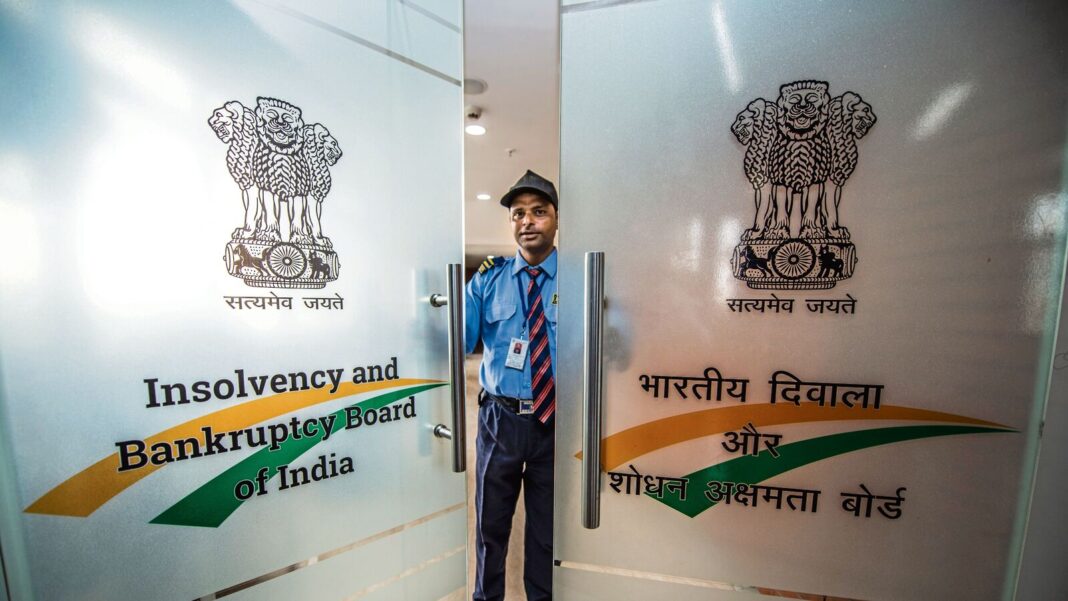In Short:
New Delhi’s Chief Economic Advisor, V. Anantha Nageswaran, emphasized the need for enhancing operational efficiency in India’s bankruptcy reforms to support small businesses and overall economic growth. He highlighted innovative solutions, like pre-pack arrangements, to reduce delays in debt resolution. Amitabh Kant noted improvements in credit health, yet there are calls for further reforms to address ongoing issues and expedite processes.
Enhancing Bankruptcy Reforms: A Step Towards Economic Growth
In a recent address in **New Delhi**, V. Anantha Nageswaran, the **Chief Economic Advisor** in the Finance Ministry, emphasized the necessity of enhancing operational efficiency and expediting the debt resolution process as crucial steps in the ongoing bankruptcy reforms. Continuous enhancements to the **Insolvency and Bankruptcy Code (IBC)** are pivotal for achieving a robust economic growth rate.
Importance for Small Businesses
During the eighth annual celebration of the **Insolvency and Bankruptcy Board of India (IBBI)**, Nageswaran pointed out that focusing on operational efficiency is especially significant for small businesses, which often struggle with legal costs.
Innovative Solutions on the Horizon
According to Nageswaran, enhancing the system’s efficiency involves exploring innovative resolution methods, such as **pre-pack arrangements** tailored for micro, small, and medium enterprises. He also stressed the importance of empowering resolution professionals and reducing delays in proceedings.
Striking a Balance
He noted that optimizing operational efficiencies necessitates a careful balance between effective resolutions and fairness. A sound bankruptcy regime, he said, serves as a safety net during economic downturns, thus minimizing the need for expensive macro-prudential interventions.
Aiming for Sustained Growth
Nageswaran asserted that a continually evolving and improving **IBC framework** is essential for **India** to achieve a growth rate of 7-8% over the next decade.
IBC’s Transformative Impact
**Amitabh Kant**, India’s G20 Sherpa and former CEO of **NITI Aayog**, echoed Nageswaran’s sentiments. He highlighted that the IBC has fundamentally transformed India’s approach to handling financial distress.
Current State of Banking
According to Kant, **non-performing assets** are at an all-time low, banks are in a strong position, credit is expanding, and economic growth in India is stabilizing. However, he acknowledged that there are valid concerns regarding the IBC’s operations, signaling the need for a second wave of reforms.
Looking at the Numbers
Analysis of data from the **IBBI** reveals that insolvency resolution at the **National Company Law Tribunal (NCLT)** took an average of 716 days last fiscal year, a rise from 654 days the previous year. Kant highlighted that the time taken for case admission ballooned from 468 days in FY21 to 650 days in FY22, proposing that amendments to the IBC could hasten this process.
Enhancing Debt Resolution Framework
Kant emphasized the urgent need to bolster the institutional framework for debt resolution. He pointed out that significant modifications to the IBC regarding cross-border insolvency, creditor rights, sector-specific challenges, and the **pre-pack scheme** are essential. The pre-pack scheme offers a flexible approach to debt resolution specifically designed for small businesses.
Call for More Resources
**Ramalingam Sudhakar**, former chief justice and current president of the NCLT, discussed the pressing need for increased manpower in the system, stating, “Give me the numbers, and I will give you the results.”
Complexities of Sew Work
Sudhakar clarified that debt resolution under the IBC, alongside cases governed by the **Companies Act**, falls within the purview of the NCLT and its appellate tribunal. He mentioned that the complexity of cases often leads parties to submit exhaustive records, and delivering comprehensive and fair decisions requires considerable time to adhere to the principles of natural justice.





